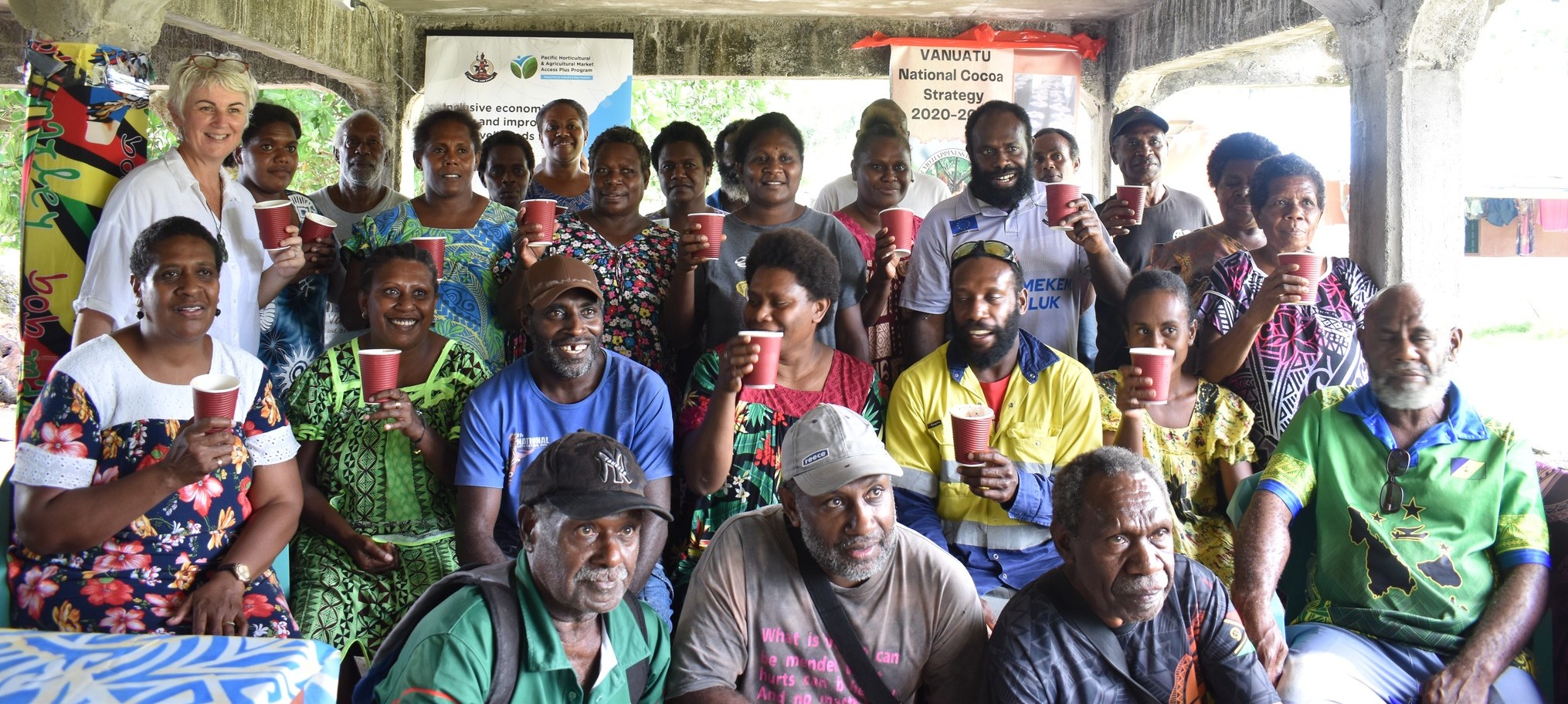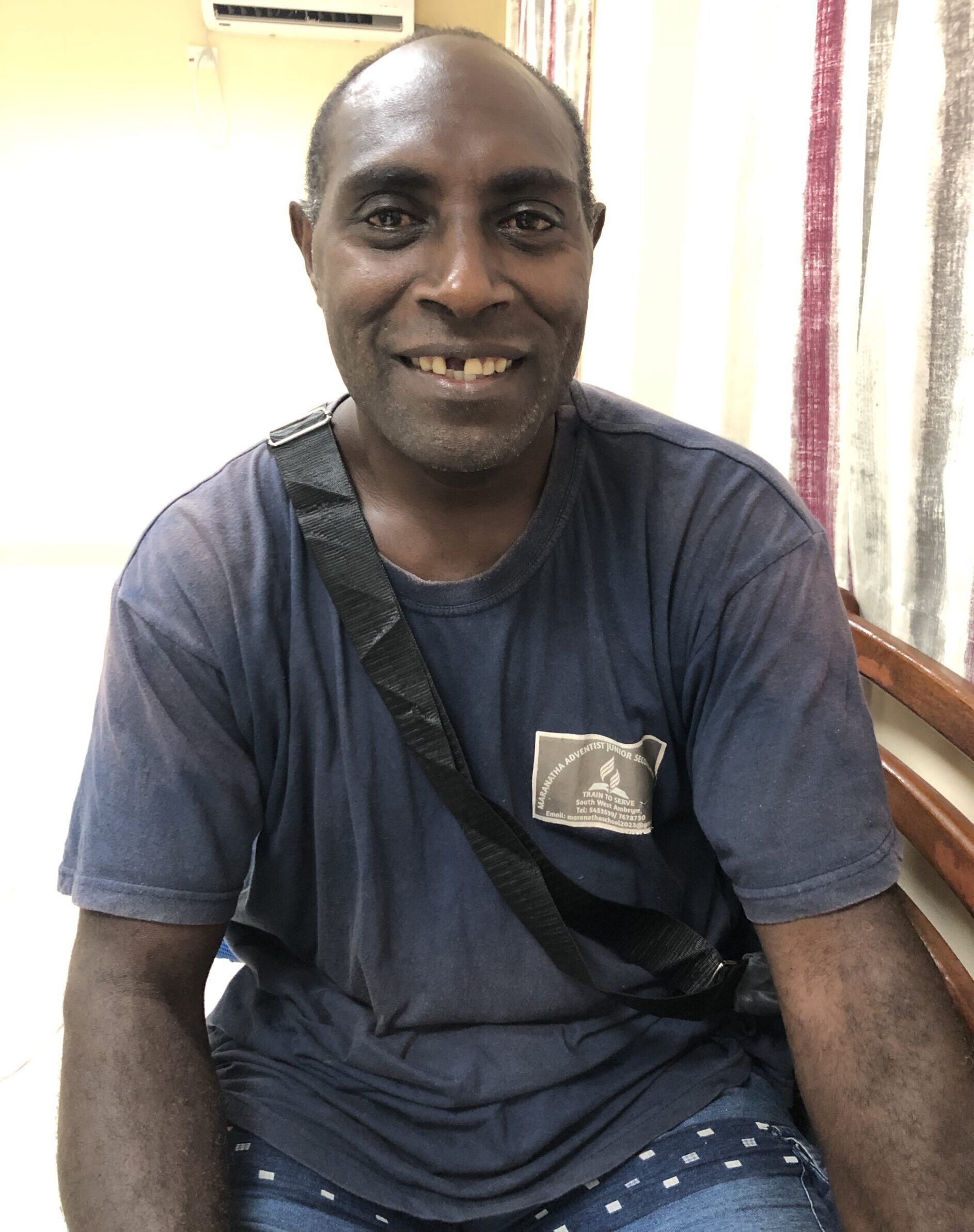Reconnecting with roots: Oonagh Browne helping 200 Malekula farmers rediscover the power of Cacao
In the heart of Malekula, cacao is not just a crop—it’s a forgotten treasure waiting to be rediscovered.
For over 30 years, this ancient plant has flourished in the fertile soil of Vanuatu, yet the farmers of Malekula who tend to it have often never tasted its rich, complex flavours. Oonagh Browne, founder of The Cacao Ambassador, is on a mission to change this.
Originally from Ireland and now living in New Zealand, Oonagh’s heart belongs to the Pacific.
Through her work, she is guiding 200 Malekula farmers to reconnect with cacao—not only as a crop but as a source of pride, health and sustainability. Her goal is simple: to help them transform cacao into a thriving business that strengthens their communities for generations to come.
For many in Malekula, cacao farming has long been seen as a low-status job—a “fate” for those who don’t succeed academically. Children grow up hearing, “If you don’t study, you’ll end up a cacao farmer.” This mindset has created a divide between the farmers and their land, making cacao something to avoid rather than embrace.
Oonagh is determined to shift this perception. “Cacao is more than just a livelihood—it’s an opportunity,” she says. By nurturing a deeper connection between the farmers and their crops, she’s inspiring them to take ownership of their work and see cacao as a path to prosperity and personal growth.
None of this would be possible without the invaluable support of the Australia and New Zealand-supported Pacific Horticultural and Agricultural Market Access Plus (PHAMA Plus) program. Through PHAMA Plus, The Cacao Ambassador is engaged as a key partner, working closely with the Vanuatu Primary Producers Association, cacao farmers and rural community groups. Together, they are equipping farmers with essential knowledge and skills needed to process cacao beans into a diverse range of products right at the village level.
Oonagh’s approach is anchored in inspiring farmers to improve the quality of their cacao for premium markets, especially couverture chocolate. She believes that achieving this requires more than just technical knowledge—it demands that farmers first cultivate a deep, personal connection with the cacao. Only then can they truly unlock its potential.
“For long-term success, consistency and quality are key,” Oonagh explains. “But no matter how much training we provide, the farmers won’t adapt to the challenges of changing climates, rainy seasons, or the complexities of fermentation unless they form a personal bond with the crop. If they want to improve their livelihoods, there has to be a relationship with the crop. Only then will they understand its true value.”
Her efforts are also aimed at reintegrating cacao into the daily lives of farmers.
In Central and South America, cacao has been an integral part of life for thousands of years. Oonagh is leading a movement to reintroduce this ancient practice by encouraging Malekula’s farmers to not only grow high-quality cacao but also consume it regularly for its health benefits. Rich in plant-based iron, magnesium, and theobromine (which helps with insulin resistance), the beans offer far more than a luxury export—it’s a powerful, sustainable food source.
“Cacao is food for the body, food for the community, and food for the soul,” Oonagh says. Her vision is not only to boost the quality of cacao beans but also to cultivate a vibrant local economy. She points to Samoa, where cacao is a thriving market product, as a model for Vanuatu.
In Samoa, the ‘black gold’ is koko Samoa, a popular drink made from roasted cacao beans. This cultural practice highlights how cacao can be more than just a commodity—it’s deeply integrated into daily life. Oonagh imagines a similar future for Vanuatu, where cacao is not only grown for export but also cherished as a staple that nourishes both the body and the local economy. “We want to do that here in Vanuatu—to spark a systemic change that transforms local markets and livelihoods.”

Oonagh’s work begins with education. She has developed a simple but effective training manual, How to Farm Your Cacao Block as a Business, to equip farmers with the knowledge they need to succeed. The manual focuses on practical, easy-to-implement strategies to produce and sell high-quality cacao, emphasising that success doesn’t require expensive equipment or complex processes.
Her approach goes beyond farming techniques. Oonagh is teaching farmers how to use cacao creatively—roasting beans, peeling them, and making cacao tea for their families. “We’re showing them that cacao isn’t just for export; it’s a part of their everyday lives,” Oonagh explains. “They can run their cacao blocks as local businesses, making use of what they already have.”
Oonagh praises the farmers for their willingness to embrace a non-traditional approach. “It’s not just about training them; it’s about teaching them to live with cacao—to understand its value and potential,” she says. “When farmers rehabilitate their land or plant new cacao blocks, they’re not just improving their crops—they’re investing in their future.”
This shift in mindset is already yielding results. “Women and youth will be key to leading the charge,” Oonagh says with quiet conviction. “Imagine walking into a local market and seeing cacao sold alongside mangoes and cabbages. That’s when I’ll know we’ve made a real impact.”
Oonagh’s dream is a future where cacao is woven into the fabric of every village’s daily life—where farmers not only grow it but also sell it at local markets and enjoy it as a staple in their homes. This vision extends beyond farming; it’s about creating sustainable businesses that support entire communities for generations.
“This is how cacao has always been: an ancient food, a source of health, and a profound connection to the land,” Oonagh says. “Every farming community that grows cacao should have the right to consume it first, before it’s sent to factories.”
The road ahead is long and challenging, but Oonagh’s commitment to transforming cacao farming in Vanuatu remains steadfast. “We can’t do it the way we’ve done it before,” she insists. “It takes courage to step outside what is familiar. But change is possible.”
With every step she takes, Oonagh is helping the farmers of Malekula reconnect—not just with cacao, but with their land, their heritage, and a way of life that holds the power to change everything.

Harold Rogsin, a cocoa farmer from Lembinwen Village, Malekula, has experienced significant improvements through the PHAMA Plus Program.
“Before, cacao was just a crop,” he says. “Now, I understand its full potential.”
For more than 20 years, Harold has weathered challenges like cyclones and fluctuating market prices, but he has remained committed to producing high-quality cocoa. “It takes patience,” he reflects.” But when you focus on quality, it’s worth it.”
Through PHAMA Plus support, Harold developed new skills in drying and processing cocoa beans. These improvements have helped him produce top-grade beans, which are now supplied to well-known chocolate makers, including the Aelan Chocolate Factory.
Harold employs five people on his farm and is a strong advocate for women’s involvement in cacao farming. “Everyone deserves financial independence,” he believes.
The training has given Harold not just new techniques, but new confidence. He now sees cacao not just as a business but as something that contributes to health and well-being.
“I’m grateful I got to attend Oonagh’s workshop,” he says. “Cacao is packed with antioxidants—it is good for you, and I think it should become a part of everyone’s daily routine.
As a father of four, Harold’s dedication is about more than farming. It is about sharing knowledge, creating opportunity, and building a better future for the next generation.
ENDS
For more information please contact Country Manager – Vanuatu, Emily Tumukon at e.tumukon@phamaplus.com.au au or Zafiya Shamim, Senior Communications Officer on z.shamim@phamaplus.com.au
